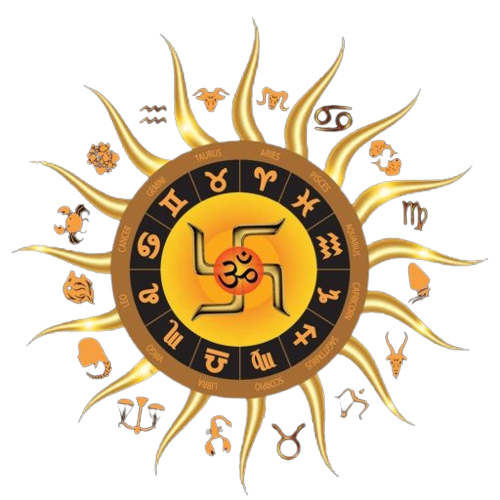Diwali, often referred to as Deepavali, is one of the most anticipated and widely celebrated festivals in India and among Indian communities worldwide. It’s a festival that transcends religious and cultural boundaries, symbolizing the victory of light over darkness and good over evil. In this article, we’ll explore the significance, traditions, and the essence of Diwali.
The Significance of Diwali
At its core, Diwali is a Hindu festival that holds great religious and cultural significance. It marks the return of Lord Rama, one of the most revered deities in Hinduism, to the kingdom of Ayodhya after his victory over the demon king Ravana. This triumphant return is celebrated as a metaphorical triumph of righteousness and truth.
But Diwali is not just a Hindu festival; it is celebrated by Jains, Sikhs, and Buddhists as well, albeit with variations in its meaning and customs. For Jains, it commemorates the attainment of nirvana by Lord Mahavira. Sikhs often celebrate Diwali as the release of Guru Hargobind Ji from imprisonment. For Buddhists, it signifies the conversion of Emperor Ashoka to Buddhism.
The Festival of Lights
Diwali gets its name from the rows of clay lamps, or diyas, that people light outside their homes. These lamps represent the inner light that protects us from spiritual darkness. Fireworks and colorful lanterns illuminate the night sky, creating a mesmerizing spectacle that captivates people of all ages.
The festival extends over five days, with each day holding its own significance and customs. It starts with Dhanteras, a day dedicated to celebrating prosperity and wealth. The second day, Naraka Chaturdashi, marks the victory of Lord Krishna over the demon Narakasura.
Traditions and Customs
Diwali is a time for various customs and rituals, and one of the most common is the cleaning and decorating of homes. It is believed that Goddess Lakshmi, the goddess of wealth and prosperity, visits clean and well-decorated homes. Rangoli, colorful patterns made from rice flour, flower petals, or colored powders, adorn the entrance of houses. This practice is not only visually appealing but also considered an invitation to the goddess.
Exchanging Gifts and Sweets
Diwali is also a time for giving and receiving. People exchange gifts and sweets with their loved ones as a gesture of goodwill and to strengthen relationships. It’s a tradition that fosters love and togetherness.
Feasting on Delicious Food
Food is an integral part of any celebration, and Diwali is no exception. Families prepare an array of sweets and snacks, including laddoos, jalebis, samosas, and more. These delectable treats are shared among family and friends, adding to the joy of the festival.
Wearing New Clothes
It’s customary to wear new clothes during Diwali. People often purchase new, vibrant outfits to symbolize the festival’s spirit of joy and renewal. Bright and colorful attire reflects the optimism and happiness associated with this time of year.
Lighting Firecrackers
One of the more controversial aspects of Diwali is the tradition of lighting firecrackers. While these fireworks add to the festivities, there is a growing awareness of their environmental impact. Many people are now choosing to celebrate Diwali with eco-friendly alternatives to reduce air and noise pollution.
Diwali in 2023
As Diwali 2023 approaches, there is a sense of anticipation and excitement in the air. Preparations are underway in homes, streets, and communities across the world. Families are cleaning, decorating, shopping for new clothes, and planning special meals. It’s a time of togetherness and joy.
Conclusion
Diwali is more than a festival; it’s a celebration of life, light, and the victory of good over evil. It’s a time to cherish relationships, reflect on the year gone by, and welcome the new with hope and positivity. Diwali’s significance extends beyond religion, making it a festival for all to enjoy and appreciate.
Remember, Diwali is not just about the rituals and customs but also about the love and togetherness it fosters. As you celebrate this Diwali, embrace the traditions that resonate with you, and create your unique memories of this beautiful festival.
Now, let’s delve into some common questions related to Diwali:
FAQs (Frequently Asked Questions)
- Why is Diwali sometimes called Deepavali? Diwali is often referred to as Deepavali because “Deepa” means lamp or light, and “Avali” means a row. The festival’s name signifies the rows of lamps that people light during this time.
- What’s the significance of Rangoli during Diwali? Rangoli is a colorful and intricate design made on the ground. It’s a way to decorate the entrance of homes and welcome guests. The patterns vary, but they all share the theme of beauty and hospitality.
- Why do people clean their homes before Diwali? Cleaning homes before Diwali is believed to welcome Goddess Lakshmi, who is associated with wealth and prosperity. A clean home is considered an inviting and auspicious place for her to reside.
- What are some eco-friendly ways to celebrate Diwali without firecrackers? Eco-friendly Diwali celebrations can include using clay lamps instead of firecrackers, minimizing waste, and opting for homemade sweets and snacks. Some people also choose to donate to charities during this time.
- How long has Diwali been celebrated? The exact origins of Diwali are unclear, but it is believed to have been celebrated for thousands of years. Its traditions and significance have evolved over time, making it a rich and diverse festival.

